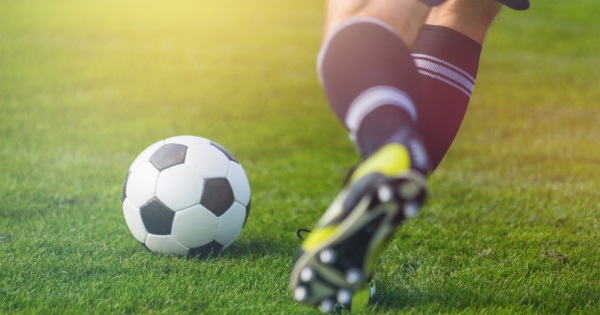best online bookmaker will also provide in-depth knowledge of why sports betting always results in losses, hoping it will be useful for readers.
"90% of sports bettors will lose, and the remaining 10% will gradually lose in the long run." This is a strong affirmation from a criminal expert on VTV television.
While the world is immersed in the festive atmosphere of the biggest football tournaments on the continent, Euro 2020 and Copa America 2023, the issue of sports betting has emerged as a hot topic, causing headaches for authorities due to its consequences.
With the desire to "change their lives," a group of people have placed their hard-earned assets on football matches but have not achieved the desired results. Many believe that the more bets you place, the more likely you are to lose heavily. Could it be that the "bookmakers" have been involved in fraudulent betting schemes that lead to significant losses?
So why does sports betting always result in losses? Let's explore some scientific studies that prove that once you've lost, continuing to play makes you even more likely to lose. This can help you avoid futile gambling and avoid losing large amounts of money.
First and foremost, it is important to clarify that the reason for consistent losses in sports betting comes from both sides.
Bettors often wonder why they always lose in sports betting.
Firstly, when participating in games of chance and predicting the outcomes and developments of matches, the human body releases a neurotransmitter called Dopamine.
This chemical creates a feeling of exhilaration for the player when they win. They develop a belief that they are on a winning streak and continue to bet larger amounts in the hope of earning even more money. On the other hand, if they lose, it pushes the player into a state of restlessness, and they may even make impulsive decisions to continuously increase their bets (such as doubling the stakes) in the hope of recouping the lost amount.

>>See more about the bookmaker with best odds
Therefore, it is important not to rush into betting but instead take the time to research the bookmakers.
Do not let enticing offers of odds, incentives, and promotions make you forget to thoroughly investigate the credibility of the betting platform.
Once you start sports betting, be alert and wise in choosing a reputable bookmaker.
The third factor is that bookmakers can manipulate betting. For example, if too many bettors place their bets on one side, bookmakers may be ready to manipulate and adjust the odds to their advantage. The most harmful manipulation is when bookmakers can influence and manipulate the final score. Sometimes, we can observe unusual developments in major matches that result in unexpected changes in the score, making it unpredictable.
It is precisely because of the involvement of bookmakers that the number of people facing financial ruin, committing suicide, or resorting to extreme measures such as jumping off buildings or bridges has increased significantly.
The consequences of sports betting can lead to losing one's home.
With a 90% chance of losing, if "addicted" individuals do not know how to stop, how to control themselves and their emotions, their assets will gradually disappear, leading to the ultimate result of losing their homes, luxury cars, or even a few insignificant items in their homes.
Psychology is a crucial factor when it comes to gambling. Players are often influenced by their psychological state and the pressure to win. This leads to more losses and even greater losses. If you play too many games in a day, you become less agile and less capable of making sound judgments. This results in placing incorrect bets and continuous losses.
Another issue is being overly confident while playing. Confidence is a good thing, but excessive confidence can backfire. If you win a game, it may create a false sense of security for the next game. This overconfidence can lead to careless mistakes, and unfortunately, you end up losing.

>>Follow us know bookmaker apps
Many players fall into this trap. Wanting to win big without careful consideration often leads to significant losses. Once you have won some amount, it is advisable to know when to stop and retain some profit.
Furthermore, the negative consequences of sports betting extend beyond individuals and can seriously harm society. Initially, sports betting may start as a morning meal or a cup of coffee, adding excitement to watching matches. However, it gradually becomes distorted with large-scale wins and losses, resulting in tragic consequences for both the players and their families.
Sports betting is also one of the contributing factors to complex criminal activities such as murder, robbery, theft, and property damage.
To avoid the hazards of sports betting, family members should pay closer attention to each other, especially if they notice someone in the household constantly following football matches, receiving frequent phone calls, or displaying abnormal behaviors such as excessive joy, excitement, or worry and sadness after the final result of a match. Immediate intervention is crucial to prevent prolonged consequences.
When there are signs indicating family members' involvement in sports betting, it is essential to provide encouragement, advice, and raise awareness about the dangers of sports betting. It is genuinely dangerous as it can destroy individuals' and their families' future and careers. In more severe cases, seeking help from authorities, institutions, and legal systems, involving local law enforcement, can serve as a wake-up call for the addicted family members to break free from their obsession with sports betting.
In conclusion, to restore football to its true essence as the king of sports, a sport that fosters community cohesion and widespread enjoyment, we must eliminate the culture of win-or-lose gambling, which is built upon sports betting schemes that bring unforeseen consequences. Each of us should set an example for our loved ones to follow and firmly reject sports betting to ensure a clean, joyful, and healthy environment for football enthusiasm.



